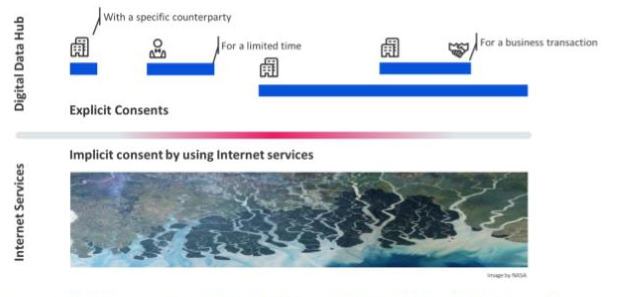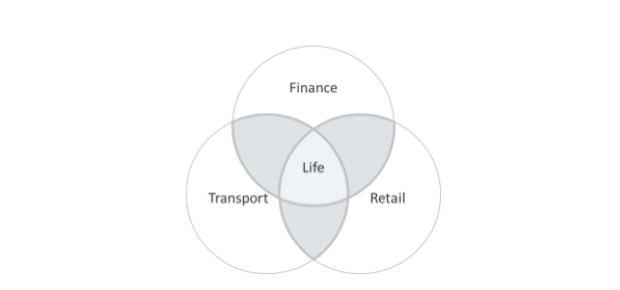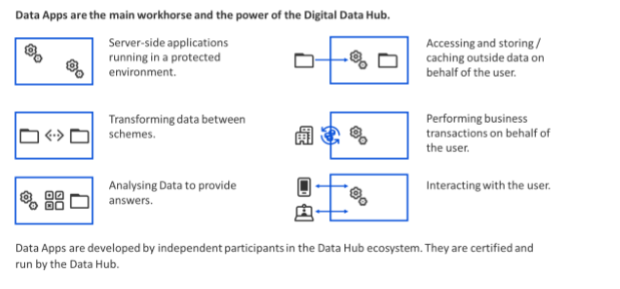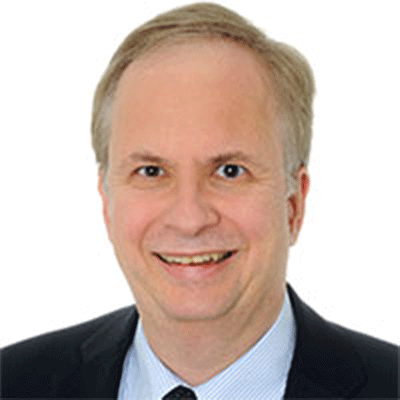In the red box phase, we mainly undertook market research and were talking to potential internal sponsors.
We did some interviews and used a questionnaire to sound the idea: About two-thirds of the individual respondents liked the idea and would use it. Although our sample was small, the result corresponds to much larger, international studies.
On the company side, small companies were most enthusiastic, seeing the business potential to attract new clients, who would join with their data already in the system. They were ready to be early adopters and were also willing to contribute to the standards.
Larger companies were split; although many see potential in sharing data and building ecosystems, some bigger players want to build their own partner systems, which they control. They want to provide a one-stop-shop, building on partners, and expect the user to roam in their ecosystem.
However, life is not a one-stop-shop; Real Estate, Finance, Travel, Shopping, Health, and Insurance are all interconnected. Essentially, there is one big ecosystem: Life




